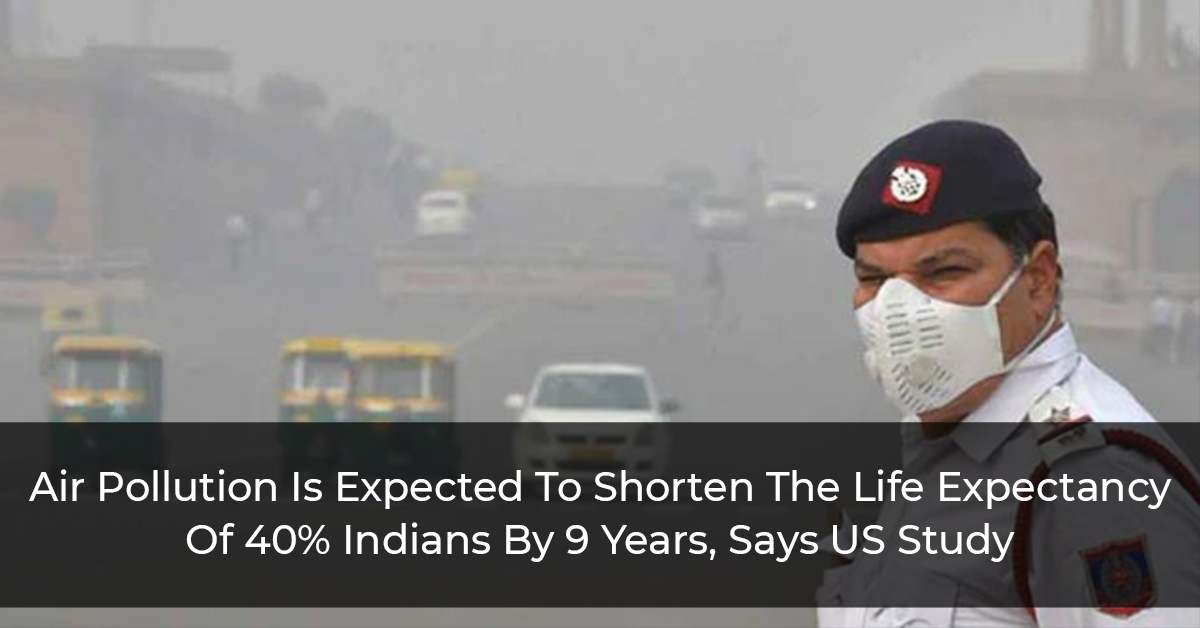Highlights:
- In Maharashtra and Madhya Pradesh, air quality has severely deteriorated.
- For the third year in a row, New Delhi was named the world’s most polluted capital in 2020.
According to a report issued on Wednesday by a U.S. research organisation, air pollution is projected to lower the life expectancy of about 40% of Indians by more than nine years.
More than 480 million people in central, eastern, and northern India, including New Delhi, suffer from severe levels of pollution, according to a research by the Energy Policy Institute at the University of Chicago (EPIC).
The EPIC report said, “Alarmingly, India’s high levels of air pollution have spread geographically over time.”
According to the report, air quality in Maharashtra and Madhya Pradesh has substantially deteriorated.
The EPIC study lauded India’s National Clean Air Program (NCAP), which was established in 2019 to reduce hazardous pollution levels, and stated that “achieving and sustaining” the NCAP targets would increase the country’s overall life expectancy by 1.7 years and that of New Delhi by 3.1 years.
Also Read: Air Pollution Is The “Greatest Risk To Human Health” Claim Experts
The NCAP intends to reduce pollution in the 102 worst-affected cities by 20%-30% by 2024 by reducing industrial emissions and vehicle exhaust, implementing severe restrictions for transportation fuels and biomass burning, and reducing dust pollution. It will also necessitate improved monitoring systems.
According to IQAir, a Swiss company that evaluates air quality levels based on the concentration of lung-damaging airborne particles known as PM2.5, New Delhi was the world’s most polluted capital for the third consecutive year in 2020.
Last winter, New Delhi’s 20 million people, who had breathed some of the cleanest air on record in the summer due to coronavirus shutdown limits, had to deal with poisonous air due to a significant spike in farm residue burning in neighbouring states Punjab and Haryana.
Also Read: 54,000 People Lost Their Lives In Delhi Due To PM 2.5 Air Pollution Last Year: Study
According to the EPIC findings, if neighbouring Bangladesh improves air quality as per World Health Organization standards, it may increase average life expectancy by 5.4 years.
EPIC calculated life expectancy by comparing the health of those exposed to various levels of long-term air pollution and applying the results to various locations in India and worldwide.


